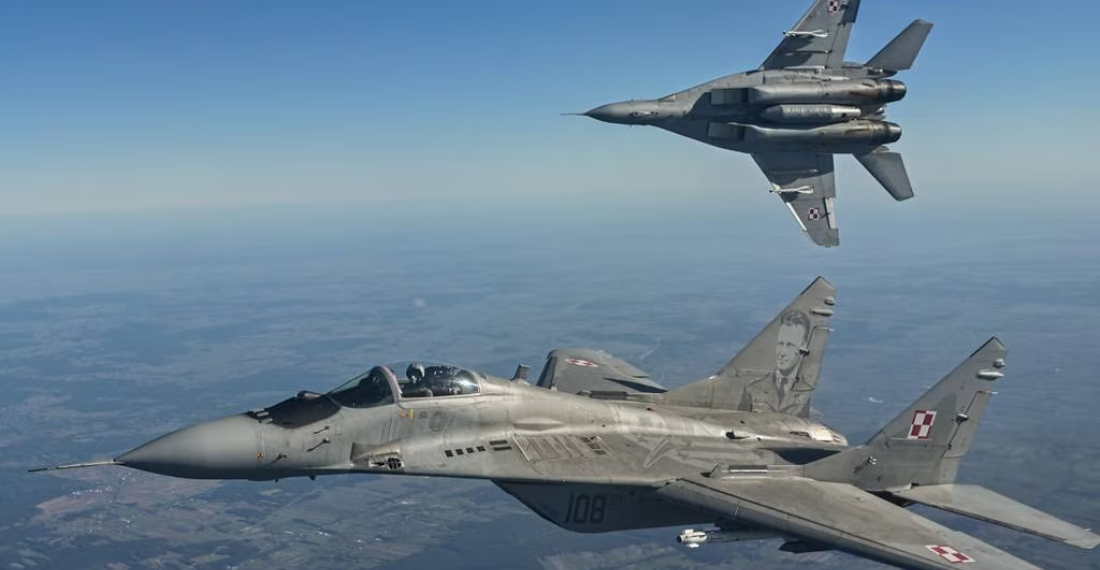Poland has announced that it will supply Ukraine with more Soviet-era MiG-29 fighter jets after Berlin approved Warsaw's request to re-export the jets originally from East German stocks.
Following the German government's approval of the re-export on Thursday (13 April), the total number of fighter jets that Poland has committed to sending to Ukraine will likely be around 20.
Poland had earlier pledged 14 MiG-29s to Ukraine, with four having already been delivered. The Polish president's security adviser, Jacek Siewiera, has said Poland still has about 12 out of 23 MiG-29s that Poland bought from Germany 21 years ago, none of which have yet been sent to Ukraine. Yesterday's approval from Berlin will likely change this.
Slovakia has also delivered four of its MiG-29 jets to Ukraine, with the government having approved 13.
"Unlikely to be a game changer"
Despite the transfer of the Soviet-era jets to Ukraine being very helpful, Yurii Ihnat, Ukraine’s Air Force spokesperson, has said they are "unlikely to be a game changer at the front".
Ever since convincing western allies to approve the transfer of Leopard 2 tanks to Ukraine, Kyiv has campaigned for western allies to approve the transfer of U.S.-made F-16 fighter jets, needed to support offensive operations and protect against Russian attacks.
Although no country has approved the transfer of the jets so far, neither has any country ruled out providing Kyiv with F-16s.






